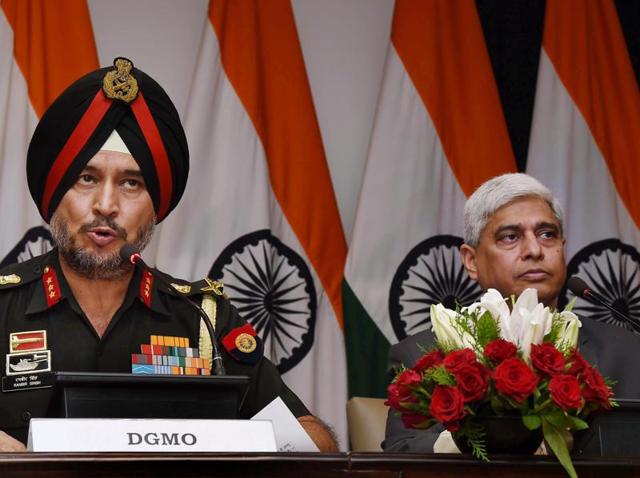India takes a calculated risk by going for surgical strikes
India’s military strikes seem to have avoided any formal Pakistani military installations, focusing on camps used by Islamicist militants. It has also kept within the territory of Pakistan Occupied Kashmir, allowing New Delhi to claim it is carrying out attacks on territory that it legally considers its own or whose sovereignty status is uncertain
India on Thursday announced that it has carried out military strikes against terrorist camps across the Line of Control (LoC) in response to the terror attack on a military base at Uri in Jammu and Kashmir on September 18. Nineteen Indian soldiers were killed in that attack.

In carrying out this attack on Thursday, India has sent a strong signal that it is prepared to take a calculated risk and respond with violence to terrorist attacks from Pakistan-controlled territory.
Read | Indian Army targets terrorists across LoC, inflicts casualties
New Delhi has previously been in a quandary regarding how to respond to such terrorist attacks that are clearly carried out with the support of Pakistan’s military.
While surgical military action is always possible, the question is to whether go public with such reprisals. In the past, India has carried out such attacks and kept quiet about it — and generally found that Pakistan has preferred not to say anything either. Thus escalation does not take place and the international concern is limited or zero.
But this does not assuage public opinion and is politically difficult for the government in power. A public declaration makes it difficult for Pakistan not to respond in kind, because of an outcry among its own citizens. The threat of a downward spiral towards full-scale war then makes an appearance.
Read | High alert in Punjab villages along border after India’s surgical strikes
Two decades ago, no matter which party was in power in New Delhi would either carry out a secret strike or do nothing. Today, it seems, New Delhi feels the calculus of power has moved strongly in its favour for it to speak moderately and wield a small stick.
It helps that Pakistan has successfully isolated itself by becoming one of the world’s hubs of terrorist training and recruitment, and infuriating governments across the world. With the US having withdrawn most of its troops from Afghanistan and Pakistan, Islamabad has reduced in its strategic utility to many of its international supporters.
China remains its strategic bulwark but even Rawalpindi knows that Beijing has been careful to never fire a shot in Pakistan’s favour when it is in conflict with India. China will happily provide bullets and guns to Pakistan, but tries to avoid wielding its military force for a third country. Moreover, India was remarkably successful in isolating Pakistan diplomatically in the past few weeks.
Read | India’s claim of surgical strikes ‘fabrication of truth’, says Pakistan army
Surgical strikes need to be carried out in a careful and thought-out manner — which seems to be the case here.
India’s military strikes seem to have avoided any formal Pakistani military installations, focusing on camps used by Islamicist militants. It has also kept within the territory of Pakistan-occupied Kashmir, allowing New Delhi to claim it is carrying out attacks on territory that it legally considers its own or whose sovereignty status is uncertain. This continues a past practice of the Indian government, providing a useful figleaf to an international community that is happy to avoid getting involved. It is a sensible recognition that India may be stronger than it was once but it should be nuanced enough to let all other players to find an excuse to support India.
Read | Sensex crashes over 500 points after India confirms strikes on Pak
India should not assume that there will not be a future reprisal by Pakistan. But if it comes, the initial Pakistani denial that such attacks even happened indicates it will be within the norms of low-level violence that characterises poor relations between the two South Asian neighbours. Hopefully, India’s response will also win it several months or a few years of relative quiet on the terror front.
Nonetheless, Prime Minister Narendra Modi should keep in mind that the present political turmoil in Kashmir, most of which is a product of domestic errors, will be too great a draw for Pakistan’s mischief-making tendencies to resist. In addition, he has gambled like his predecessors on a benign security environment and allowed defence preparedness to decline. India’s weapons purchases and defence reforms cannot be put off any more.
Whatever else, the past two years of bonhomie with Pakistan are over even as relations with China are at a standstill. India’s security environment is deteriorating, if gently, and spring is rapidly turning to winter on this front.
letters@hindustantimes.com





